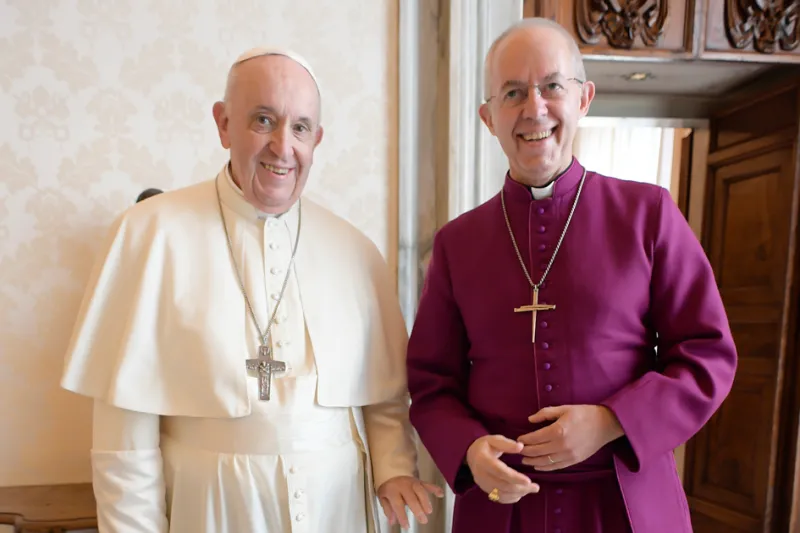
Vatican City, May 7, 2022 / 09:45 am (CNA).
Pope Francis has said that he is looking forward to visiting South Sudan this summer together with the archbishop of Canterbury and the moderator of the Church of Scotland in a “pilgrimage of peace.”
In a joint-statement published by the Vatican on May 7, the archbishop of Canterbury, Justin Welby, and the moderator of the Church of Scotland, Jim Wallace, joined the pope in urging leaders in South Sudan to follow the “way of forgiveness and freedom.”
“In this Easter season, we write to share with you our joy as we celebrate the resurrection of Jesus Christ, who shows us that a new way is possible: a way of forgiveness and freedom, which enables us humbly to see God in each other, even in our enemies,” the statement said.
“This path leads to new life, both for us as individuals and for those we lead. It is our prayer that you will embrace afresh this way, in order to discern new avenues amid the challenges and struggles at this time. We pray too that your people will experience the hope of Easter through your leadership. In anticipation of our Pilgrimage of Peace this coming summer, we look forward to visiting your great country.”
Pope Francis is currently scheduled to travel to South Sudan’s capital city of Juba from July 5-7, following a July 2-5 visit to the Democratic Republic of Congo.
If the trip takes place, Pope Francis will become the first pope to visit South Sudan, which became the world’s newest country when it declared independence from the Republic of the Sudan on July 9, 2011.
The nation in east-central Africa has a population of 11 million people, around 37% of whom are Catholic.
In 2019, Pope Francis brought South Sudanese leaders together at the Vatican for a “spiritual retreat” aimed at resolving their differences.
The joint statement from Pope Francis, Welby, and Wallace was published at a time when the pope is using a wheelchair due to a torn ligament in his right knee. The 85-year-old pope has canceled his engagements on multiple occasions in recent weeks due to knee pain.
A previously scheduled papal trip to South Sudan with Welby was canceled in 2017 due to security concerns.
If you value the news and views Catholic World Report provides, please consider donating to support our efforts. Your contribution will help us continue to make CWR available to all readers worldwide for free, without a subscription. Thank you for your generosity!
Click here for more information on donating to CWR. Click here to sign up for our newsletter.





Leave a Reply